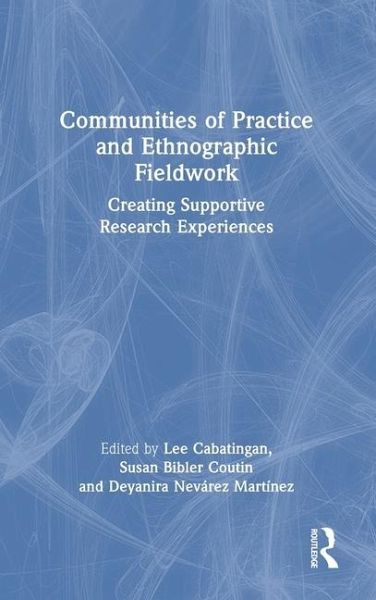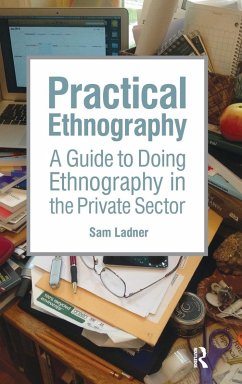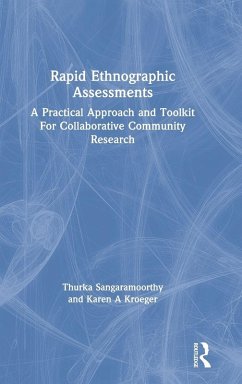
Communities of Practice and Ethnographic Fieldwork
Creating Supportive Research Experiences
Herausgeber: Cabatingan, Lee; Martínez, Deyanira Nevárez; Bibler Coutin, Susan
Versandkostenfrei!
Versandfertig in 1-2 Wochen
170,99 €
inkl. MwSt.

PAYBACK Punkte
85 °P sammeln!
Communities of Practice and Ethnographic Fieldwork offers a new perspective on how ethnography might be learned and practiced. Specifically, this edited volume explores how ethnography is learned in real-time through participation in a supportive community of practice.












